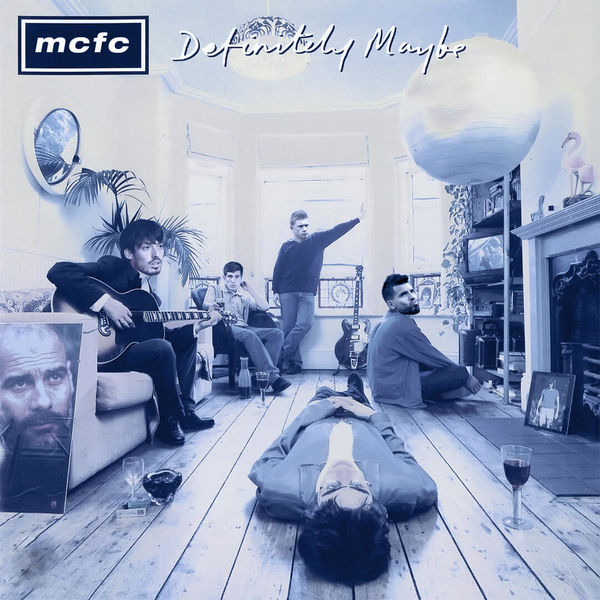"Jo-say Mour-in-ho! Jo-say Mour-in-ho!" sang Manchester United fans at their Chelsea adversaries on the other side of a line of stewards at Stamford Bridge.
The home fans laughed. They seemed unsure what to make of rivals singing about a man they'd long idolised. Soon enough they'd be celebrating his team's 4-0 loss.
Mourinho is still finding his feet in Manchester. His failure to stay in anything more permanent than a hotel made headlines—but he didn't help himself by using the word "disaster" to describe his living situation in Manchester. That was a surprise to those who pay his wages, but then Mourinho frequently goes off message when he speaks to the media.
Manchester City manager Pep Guardiola has a different set of issues. Though his apartment was one bedroom short to accommodate the close family members who recently visited, he's settled and enjoying his job. Guardiola thinks the English see football in a different way to anywhere he's worked before. They present a challenge, and he likes that.
City are behind Liverpool and Chelsea at the top of the Premier League, but Guardiola's side were lauded after beating Barcelona 3-1 in the Champions League. That result came in response to a 4-0 loss at Camp Nou, part of a run that saw City go six games without a win, leading one Spanish journalist to ask Pep: "Are you the man responsible for the loss at Camp Nou?"
Knowing the journalist represented Madrid-based El Chiringuito de Jugones, an organisation frequently hostile to Guardiola, he simply replied: "Yes, I am." Catalan and English journalists usually get much more expansive answers, with Guardiola keen for the English journalists to know there is a difference between his native Catalan and Spanish.

Photo courtesy of Getty Images.
Guardiola is an even more impressive speaker away from press conferences. He's happy to examine tactics and offer more depth on his players. He greatly admires Fernandinho, whose contract is running down, and thinks a team containing three Fernandinhos would win the league. He'll be recommending the Brazilian for a contract renewal—a decision that will be taken by City's board.
With Guardiola, it's not just about his players. His Mancunian assistant, Brian Kidd, doesn't have much say in City's tactics, but he's appreciated as a man who knows Manchester's culture and history, and knows the rest of the country too. When City go to White Hart Lane or Stamford Bridge, assistants like Mikel Arteta, who came through Barcelona's youth system, will have a few connections. But Kidd will know 30 or more people, from the concierge to the tea ladies.
If City's youth team gets drawn against a team few of the Spanish speakers know much about, it'll be Kidd who fills in the details. For a man so closely connected to United, he's proved invaluable to City and to Guardiola.
Mourinho returned to Stamford Bridge amid a mood of optimism.
"Ladies here, jackets open," cried the senior Chelsea steward as the bulk of 2,700 Manchester United fans pushed forward into the Shed End, 20 minutes before kick-off.
The away tickets were for the Shed Upper or Lower sections. Thanks to fan campaigns, they were capped at £30 for adults. Chelsea were charging United fans £25 as long ago as 1993, when they were a mid-ranking side playing to 20,000 in a decrepit, crumbling Stamford Bridge.
On the concourse of the upper section, decorated with posters of Zlatan Ibrahimovic and the non-playing Wayne Rooney—a nice touch by Chelsea to make the visitors feel at home—United fans were in full voice. "Have you ever won the treble? Have you, f--k?" they sang. "Have you ever won the treble, like Phil and Gary Neville?"
Furtively, a man pulled hard on a cigarette in the packed toilets, the floor wet from excess urine, the mirrors fogged. "Viva John Terry, Viva John Terry," continued the choir around him. "Could have won the cup, but he f--ked it up, Viva John Terry."
The game started badly for United and got worse. A 4-0 defeat was Mourinho's heaviest in English football, yet the United fans grew louder as Chelsea's goals flew in. If there's strength in adversity, it can usually be found in songs sung miles from home. United fans aren't short of detractors, yet they have one of the finest songbooks in football.
Being from Manchester should provide endless musical inspiration. The city is, after all, not just famous for football and rain. Music is a Mancunian religion too. This was demonstrated as Guardiola modeled for the cover of the Spanish version of October's GQ magazine. The strapline read: "Guardiola in Manchester (Music, Football and A Lot of Rain)."











